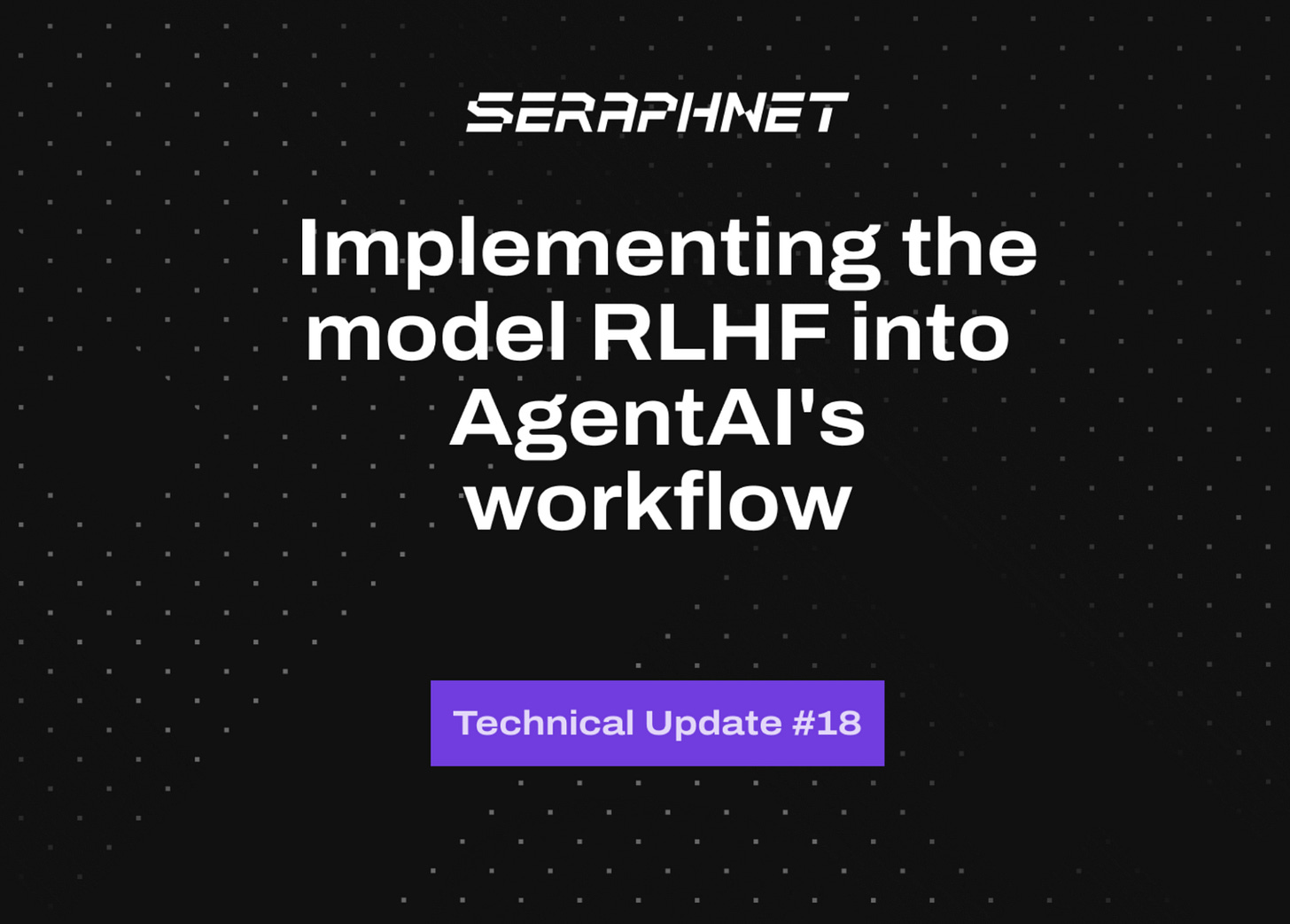Technical Update #18: Implementing the model RLHF into AgentAI's workflow
As AI continues to evolve, it is becoming increasingly important to ensure that intelligent systems, like AgentAI, remain effective, unbiased, and aligned with the needs of a diverse user base. Reinforcement Learning from Human Feedback (RLHF) is a critical tool in this effort, allowing AI models to learn from real-world human interactions. However, when feedback data is skewed towards a particular demographic or perspective, it can lead to bias within the AI system, causing it to prioritize the needs of certain user groups while neglecting others. In this blog post, we explore how AgentAI can implement RLHF effectively while minimizing bias, ensuring that the AI model performs optimally across various demographics and user contexts.
Understanding the Challenge: Bias in Feedback Data
Feedback data is the lifeblood of RLHF, guiding the reward model that dictates how AgentAI makes decisions and generates responses. However, if the feedback is disproportionately collected from specific demographics or communities, the model will tend to overfit to the preferences of that group. This creates a risk of systemic bias, where AgentAI excels in delivering relevant and useful outputs for some users but struggles with others, particularly those from underrepresented groups or cultural contexts.
To mitigate this challenge, a deliberate and structured approach to feedback collection must be employed. This ensures that AgentAI does not just learn from a narrow subset of users, but rather adapts to a wide range of perspectives and scenarios.
Mitigating Bias Through Diverse Feedback Collection
The first step in addressing potential bias is to design feedback mechanisms that intentionally capture input from diverse demographics, cultural backgrounds, and perspectives. This can be achieved through a multi-faceted approach:
Targeted Surveys and User Testing Groups: Creating a diverse pool of testers from different age groups, ethnic backgrounds, languages, and accessibility needs ensures that feedback is inclusive. This can involve collaborating with organizations or communities that represent underrepresented groups to gather their input.
Community Feedback Loops: Embedding feedback collection into various community groups ensures that AgentAI is exposed to a broad spectrum of user experiences. Diverse community engagement can help identify user pain points and areas of improvement that might otherwise go unnoticed.
Outreach and Partnerships: Proactively seeking feedback from underrepresented groups, through outreach initiatives or partnerships with diversity-focused organizations, helps balance the feedback dataset and prevents over-representation of any single demographic.
Dynamic Feedback Systems: Deploying AgentAI across different environments, such as different geographic regions, industries, or cultural contexts, and actively soliciting feedback from users in these settings allows for real-time adaptation. By continuously refreshing the feedback data, AgentAI can ensure that it captures new perspectives as they emerge.
Regular Audits and Data Analysis
Collecting diverse feedback is only part of the solution. Regular audits of the collected data are essential to detect and correct any imbalances in the dataset. Statistical tools can be used to analyze the distribution of feedback across different user segments, identifying any under- or over-represented groups. For instance:
Distribution Analysis: Statistical tests can identify skewed feedback, allowing for a clear understanding of which demographics or perspectives dominate the dataset.
Corrective Actions: When imbalances are identified, corrective measures, such as adjusting the sampling methodology or conducting targeted outreach to underrepresented communities, should be implemented.
These audits ensure that the feedback loop remains fair and inclusive, and help prevent the AI model from overfitting to the preferences of certain users, which would limit AgentAI’s ability to generalize across diverse scenarios.
Preventing Overfitting and Enhancing Generalization
Overfitting to narrow preferences is a common issue in AI systems that rely on skewed feedback data. When this occurs, AgentAI may perform well in familiar contexts but struggle with new or less-represented interactions. This can lead to poor user experiences in scenarios that the model has not been adequately trained on.
To prevent overfitting and ensure generalization, it is critical to:
Include Diverse Use Cases and Scenarios: Feedback collection should span different languages, accessibility needs, and cultural contexts. For example, incorporating feedback from both urban and rural users, multilingual environments, and individuals with various accessibility needs ensures that the model is robust across different user interactions.
Adapt Feedback Systems Dynamically: As AgentAI is deployed in new environments, the feedback system must be flexible enough to adapt. By capturing data from new users and contexts in real-time, the model can continue to learn and evolve as the user base grows and changes.
Regularly Refresh the Feedback Data: Over time, feedback data can become stale, especially if it primarily reflects past user interactions. Regularly refreshing the dataset with new and diverse inputs ensures that AgentAI remains relevant and responsive to emerging trends, use cases, and user groups.
Continuous Improvement through Feedback
Feedback collection is an ongoing process. By integrating diverse, representative inputs, AgentAI can continuously refine its reward model and enhance its ability to perform across a wide range of user contexts. Regular monitoring and audits of the feedback data will help ensure that any potential biases are identified and corrected swiftly, keeping the AI system fair and inclusive.
Conclusion: Building Fair and Inclusive AI with RLHF
Implementing RLHF into AgentAI’s workflow offers powerful potential for creating AI systems that are not only highly effective but also aligned with the values and needs of diverse user bases. By designing feedback mechanisms that actively seek input from different demographics, cultural backgrounds, and perspectives, AgentAI can mitigate the risk of bias and ensure that its reward model remains fair and inclusive.
As AI continues to advance, building systems that generalize across varied scenarios and user groups is not just a technical challenge—it is a moral imperative. AgentAI’s commitment to diversity in feedback collection and regular audits will play a key role in delivering an AI system that performs equitably for all users, making it a trustworthy tool in an increasingly diverse world.


